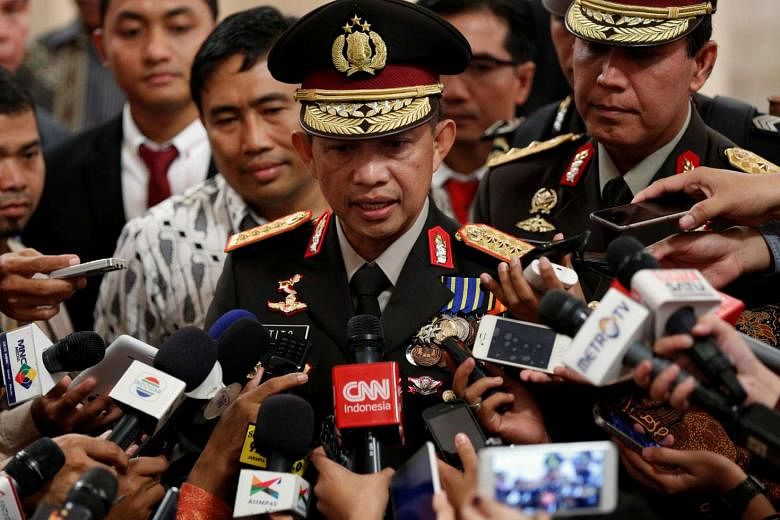In its editorial on Aug 3, the paper urges policy makers to tackle acts that lead to violence between communities.
The burning of Buddhist temples in Tanjung Balai, North Sumatra, over the weekend is the latest of too many incidents of violence against minorities.
A complaint about a mosque loudspeaker was reportedly twisted to become a call to ban the amplified Muslim call to prayer.
Social media was blamed for provoking people and a mob headed to the home of a woman who made the complaint. Failing to burn down the house, they vandalised and burned 10 temples on Friday and Saturday - seemingly because the resident who complained happened to be of Chinese heritage and many in the Chinese community are Buddhists.
The rioting is among the first challenges for new National Police chief Gen. Tito Karnavian. He has warned people against hate speech, which he blamed for the unrest, issuing a reminder that they could be subjected to the 2008 Electronic Information and Transactions Law. At least seven were arrested, including teenagers, for vandalism as well as stealing from the temples.
With several incidents of unrest in recent years, the police may have grasped that the rioting was more an excuse to target members of the Chinese minority, perceived as rich people, than triggered by perceived insults blamed on Buddhists. Fortunately no one was killed, for which North Sumatrans may thank their historic diversity.
But even if the coastal town of Tanjung Balai was relatively fortunate, though tense, and although the town is known for frequent failures of law enforcement in cases of smuggling, we will not be surprised when another incident of ethnic or religious violence erupts elsewhere. All too often we have witnessed authorities, including law enforcers, defending violent members of local majority groups with unprofessional excuses.
Authorities, including the police, have closed their eyes to many instances of what could reasonably be categorised as hate speech, including sermons clearly attacking followers of different faiths.
This situation becomes part of the challenge facing Tito and other authorities. Can they ensure that minorities feel safe in Indonesia? With no one facing trial for the 1998 rioting in Jakarta and other cities, in which ethnic Chinese people were among many who were raped and killed, such minorities unsurprisingly remain exclusive, though less so than before - perpetuating the image justifying them becoming targets come each new excuse in another location.
Of course it is not only the Chinese. Excuses related to faith make religious minorities the continued targets of vigilantes claiming to represent the faithful, who incite violence along with thugs, embarrassing the majority of Muslims.
Vice-President Jusuf Kalla has appealed twice to tone down mosque loudspeakers - which continue to blare long after the call to prayer - but this is a far from popular message. Therein lies the main problem; that to remain popular, politicians including President Joko "Jokowi" Widodo stay largely impassive regarding harassment and violence against minorities.
Such unresolved incidents, with every additional one, raise questions about Jokowi's commitment to the "presence of the state" to ensure that every citizen can live in freedom, without fear.
* The Jakarta Post is a member of The Straits Times media partner Asia News Network, an alliance of 21 newspapers.

